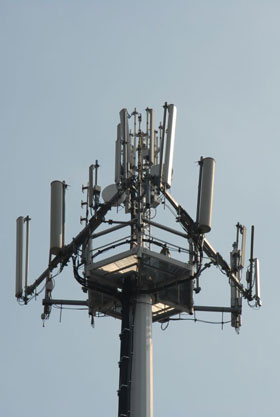 Mobile operator Smile Telecoms has launched a long-term evolution (LTE) network in Dar es Salaam in Tanzania, beating SA to the punch to roll out the next-generation mobile technology on a commercial basis.
Mobile operator Smile Telecoms has launched a long-term evolution (LTE) network in Dar es Salaam in Tanzania, beating SA to the punch to roll out the next-generation mobile technology on a commercial basis.
LTE, sometimes referred to as 4G, offers significantly faster speeds than existing 3G networks.
The service uses the 800MHz frequency band and Smile says it expects it to prove popular for videoconferencing and online gaming.
The network operator intends to expand its Tanzanian LTE coverage during the remainder of the year and is looking to expand the offering to other regions where it operates.
Aside from its Tanzanian operation Smile offers services in Uganda, the Democratic Republic of Congo and Nigeria.
Smile ran a limited pilot launch in April and has now rolled out LTE services in a number of districts of Dar es Salaam, including Mikocheni, Massani Peninsula, Oysterbay and Sinza.
Due to the limited availability of LTE handsets, consumers need to purchase broadband routers, which can be installed in homes, offices or public places like restaurants.
Alcatel-Lucent is providing the network equipment for Smile and says that because the operator is using the 800MHz band, capital costs are lower as it already has equipment designed for the band in commercial service in Europe.
The service is capable of supporting all major LTE devices, including routers, dongles, mobile phones and tablet computers.
Although SA’s second largest operator MTN has been trialling an LTE network by “refarming” a portion of its spectrum allocation, the launch of LTE services on a commercial basis continues to be hampered by the fact that the Independent Communications Authority of SA still hasn’t provided operators with access to the important 800MHz and 2,6GHz bands.
LTE is further hampered by the fact that SA continues to use lower-frequency bands for broadcasting. Once SA completes the migration from analogue to digital broadcasting, the spectrum previously occupied will be freed for LTE.
Although the migration to digital broadcasting must happen by June 2015, some countries, including Tanzania, have set their own, earlier deadlines.
Tanzania’s self-imposed deadline for completing the migration to digital terrestrial television is the end of this year. — (c) 2012 NewsCentral Media




